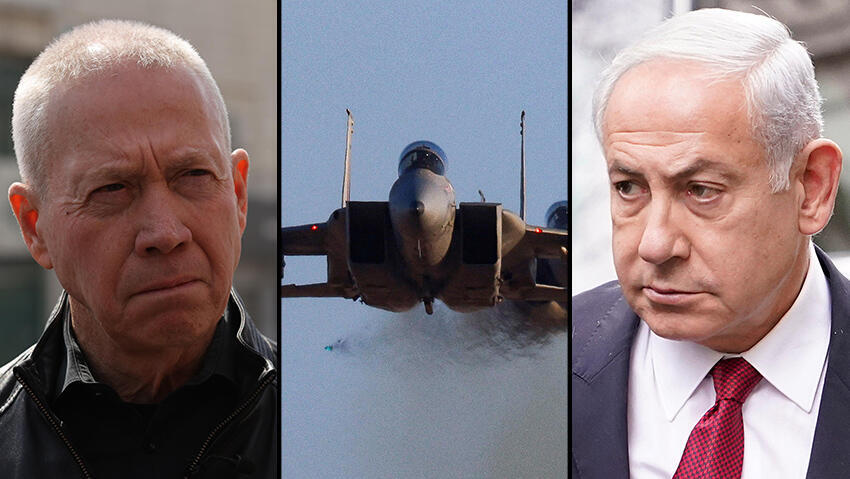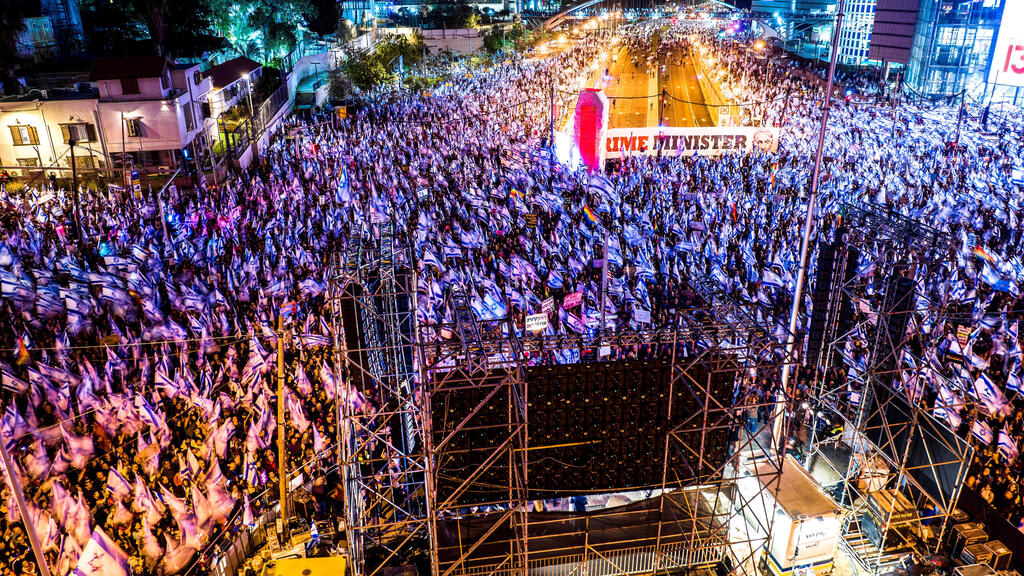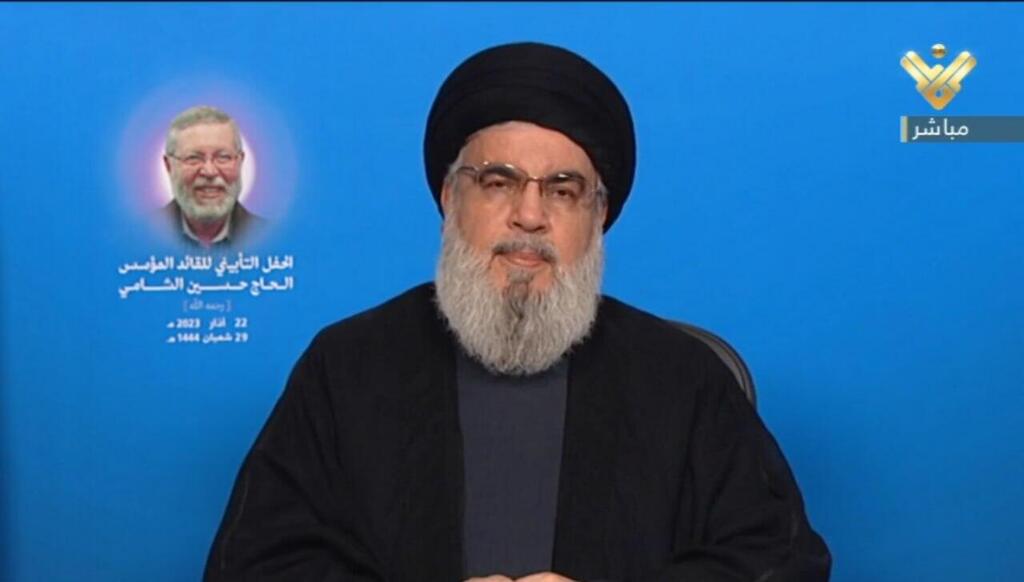Israel's Defense Minister Yoav Gallant on Saturday followed in the footsteps of a small number of coalition members, calling on the government to suspend the process of pushing through with the controversial judicial overhaul legislation and urged that all parties "sit and talk".
"The events taking place in Israeli society affect the IDF," Gallant said in a televised statement. "There are feelings of anger, pain, and disappointment of the magnitude I have never encountered before. As the defense minister of the State of Israel, I say in the clearest possible manner, the growing rift in society penetrates the IDF and the security agencies, and it poses a clear, immediate, and tangible danger to the security of Israel."
3 View gallery


Defense Minister Yoav Gallant, Prime Minister Benjamin Netanyahu
(Photo: AFP, Reuters, Alex Kolomoisky)
To understand Gallant's statement we must go back two weeks to the terror attack in the northern part of the country, when a terrorist who infiltrated across the border from Lebanon, planted an explosive device on the side of a major highway, causing serious injury to a driver.
The attack at the Megiddo junction may have produced a “disappointing” result for perpetrators, but it revealed the problematic maneuverability of the “full right-wing” government, which has placed its legislative push above all else.
To date, and although no official statement was made, Israeli security organizations believe Hezbollah was behind the attack that could have caused serious harm and numerous casualties. had that occurred, Israelis would have been involved in an all-out war with Lebanon, rather than in weekly mass demonstrations against the government
According to reports in the Lebanese Al-Akhbar newspaper, Israel conveyed messages through a third party to the Iran-backed group indicating there was little doubt as to who was responsible and Gallant himself said last week that an Israeli response would be coming.
But here's where the story gets complicated: Hezbollah leader Hassan Nasrallah not only did not panic, he used Al-Akhbar to make a threat: If Israel responds, even in a relatively minor way it would not pass without retaliation, challenging Netanyahu and his security officials.
What can and should they do when the military is torn from within over a crisis like no other prompted by the coalition's actions? Any decision to respond militarily could be seen as an attempt to rescue Netanyahu from this political crisis.
And even if a military response is made, will the Israeli public unite around a security threat when the streets are on fire and we are on the verge of a civil war?
No response, could also be very dangerous and compromise the security of Israel, and its deterrence against Hezbollah as well as other enemies in the region.
No former IDF chief of staff, as capable as he may be, can stop the growing refusal to serve, that is spreading among reservists and may also reach active military personnel. In the protests on Saturday, reservists were not demonstrating alone and were joined by enlisted men and officers currently on active service.
Top generals still believe that should a call go out to reservists in critical units, everyone will show up to defend Israel. But the IDF is now unable to ensure its reserve troop capability would rise to the challenge and senior commanders must hope that Gallant would succeed to stop the coalition's legislative push at least in the near future so that they could focus on the sole task of preparing the military for a conflict on multiple fronts.
National security should be a top priority for the government and the IDF must be supported and the home front must be prepared for a possible war that could be more challenging than Israelis have experienced in generations.
This is one of the main problems that security officials are preoccupied with. The public simply does not understand the difference between the various fronts, and some may think that a clash with Hezbollah will be similar to another round of fighting against Hamas in Gaza - It's not.
While it is important to say that Israel is familiar with wars in Lebanon. What the IDF is preparing for will be completely different from the 2006 Lebanon War. Although the blow to Hezbollah will be substantial, the Israeli home front will be hit as well, and with an intensity that we haven't known before.
With all due respect to Gallant, the only one who can hit the brakes and stop this danger is the one behind the wheel, Prime Minister Benjamin Netanyahu. Israel is probably on the verge of one of the most dramatic weeks in its history and we can only hope that in the end, common sense will prevail because the threat from outside our borders, is no less great than the domestic one.



